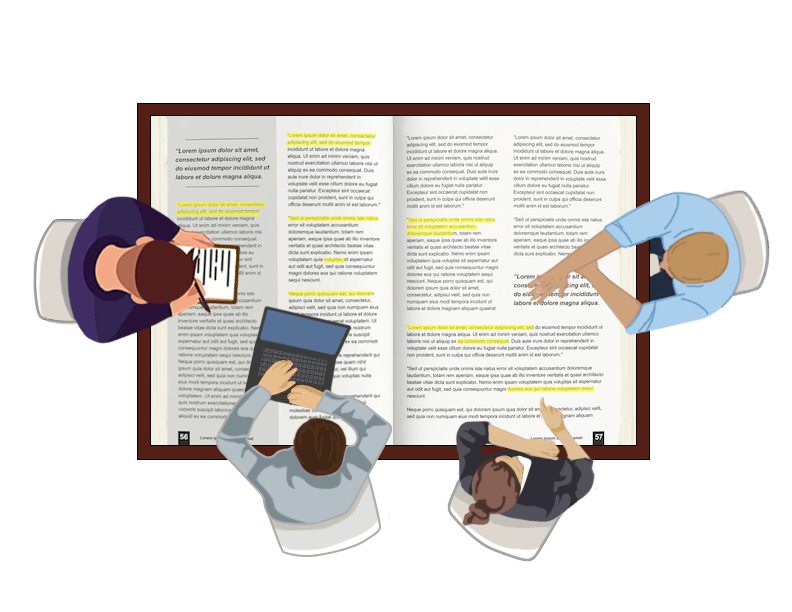This post is part of an ongoing series to promote active learning strategies and teaching tools that can support instructors in using them. Since last Spring, Academic Technology Solutions (ATS) has hosted the new active learning series Try IT: Academic Tech for Active Learning, promoting easily-implemented methods like low-stakes quizzing and minute papers, as well as microlectures as a supplement to out-of-class activities. See the Try IT event schedule page for a list of planned sessions and recordings of previous sessions. Our next session, The Text is Our Table: Annotation as a Means of Class Discussion, will be offered Wednesday, November 1, 3:30-5:00 PM both on Zoom and in-person at the Regenstein Library.
For the next event in the Try IT series, Academic Technology Solutions is offering a session on social annotation as a means of supporting deeper learning and more substantial discussion. Social annotation activities ask students to take an active role in course reading, rather than passively receiving information. The potential benefits of social annotation include encouraging engagement with primary texts; fostering dialogue and collaboration among students; and modeling effective reading and participation in your discipline. Some instructors have even explored social annotation as a way to adjust instruction in response to the availability of generative AI tools.
Engaging students in thoughtful discussion often takes significant structure and planning, especially with dense or difficult readings. By incorporating social annotation activities into your course, you can refresh your approach to discussion, assigning your students specific discursive tasks like offering counterpoints, providing context from other resources, summarizing for their classmates, and more. Students can respond to one another as they annotate documents like journal articles, case studies, or even your lecture notes.
We’re especially excited to offer a brief workshop on annotation practices, followed by a panel of four UChicago instructors from multiple disciplines who have used social annotation in their teaching with the help of Hypothesis, UChicago’s tool for annotation.
Interested in learning more? RSVP to join us on Zoom or in-person Wednesday, November 29, 3:30-5:00 PM. In the meantime, feel free to check out our blog posts on annotation to learn more.
Further Resources
- For a list of our office hours and upcoming workshops, please visit our workshop schedule for events that fit your schedule.
- For individual consultations, please send an email to academictech@uchicago.edu or use our Microsoft Bookings page.

